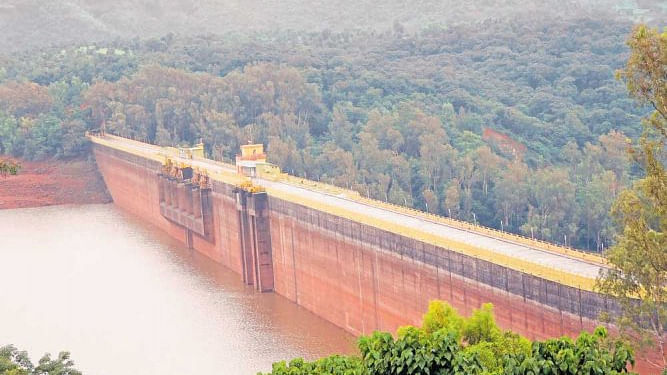
A group of villagers displaced by the Koyna Dam project four decades ago and resettled at Owe camp village, Kharghar Hills in Navi Mumbai, are struggling for drinking water now because of indiscriminate quarrying, environmentalists said.
The quarrying has diminished the Kharghar Hills capacity to absorb and hold rainwater, activist Jyoti Nadkarni of Kharghar Hills & Wetlands Group, said while addressing an International Mountain Day event.
As a result, the water bodies and wells have gone dry and the Koyna-displaced people are forced to run helter-skelter for water, she said.
There are about 500 homes at Owe camp and they get erratic pipe water supply once in two days, courtesy CIDCO.
The pipeline has also rotted and the Kharghar-Taloja Colonies Welfare Association (KTCWA) has taken up cudgels on behalf of the Owe camp residents.
Observing the UN-sponsored International Mountain Day, environment lovers have launched a campaign to save Kharghar Hills from being destroyed by official neglect and public apathy, according to a press statement.
With indiscriminate quarrying, plans for township and forest fires constantly posing dangers, NatConnect Foundation director B N Kumar called for people’s participation in impressing upon the authorities to save the hills.
“We destroy our hills and green cover and then are forced to purchase oxygen as was proved during the Covid period,” said Mangesh Ranawade, president of Kharghar-Taloja Colonies Welfare Association. Destroying trees, the natural oxygen plants, is not a wise act for the so-called progress, he said.
Nandakumar Pawar, head of Shri Ekvira Aai Pratishthan, said public opinion generated through the media support can definitely lead to good results to protect the environment. A case in point is the halt to the reckless quarrying of Parsik Hills, thanks to the public outcry, he said.
Panvel Deputy Municipal Commissioner Ganesh Shetye said the civic body is committed to save the biodiversity of the area for which the lakes are being cleaned and maintained, massive tree plantation planned.
Also Read: Technology, passion meet nature here
Forest officer Ashok Ghuge said while his department is doing what it could, public participation in saving the trees and increasing green cover on the hills is a must.
Adventure sports platform Anubhuti Endeavours hosted a trek on the Kharghar Hills and mountaineering and education experts Nisarg Mitra and Trek Climb Slack Rescue - provided the technical support for the festival.
A BNHS research shows that as many as 480 plant species thrive on the hill, apart from the presence of 10 endangered and rare plant species. Researchers found 295 insect species, 15 other invertebrates, 12 fishes, 9 amphibians, 28 reptiles, 179 birds and 12 mammals’ species.